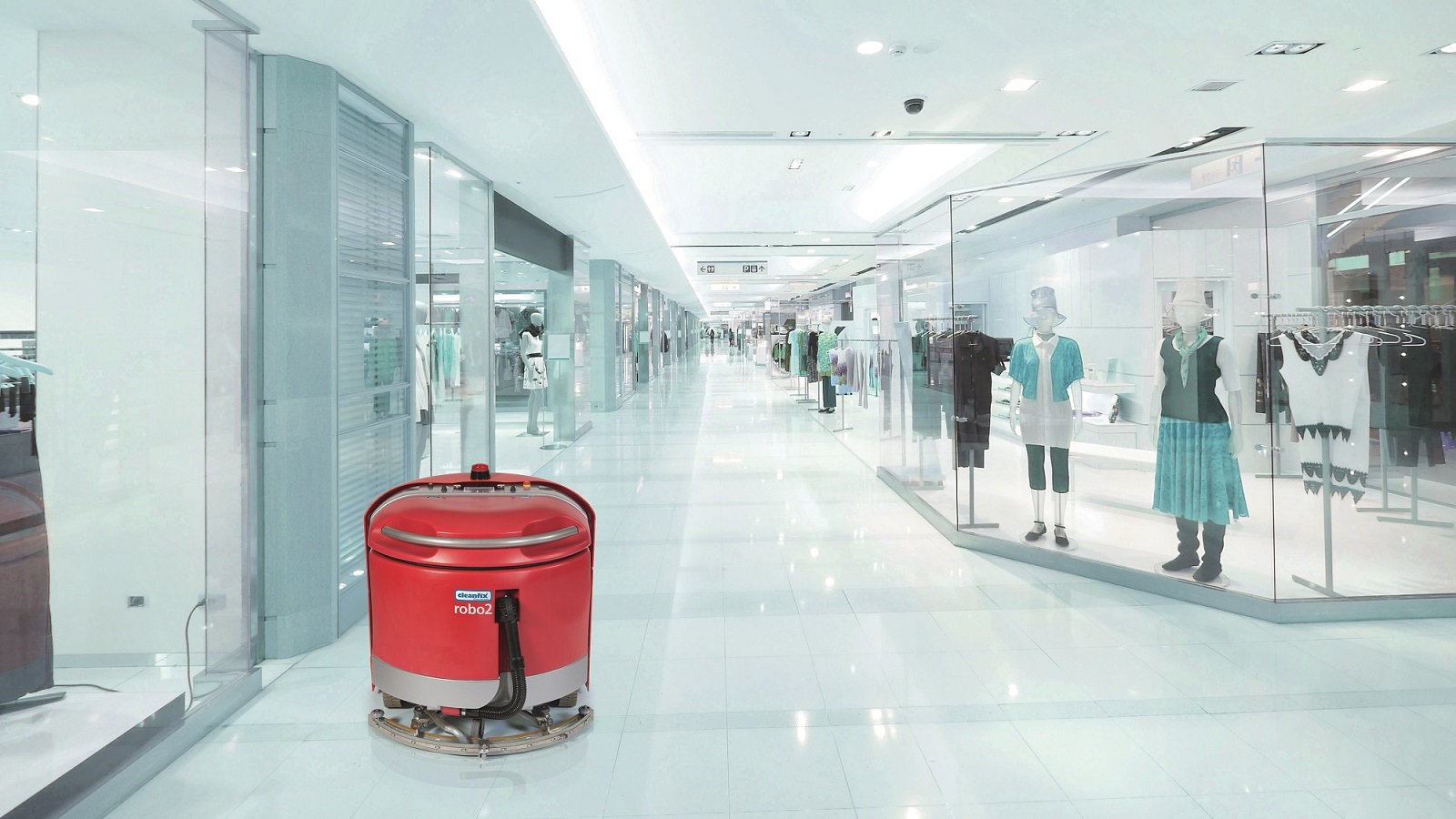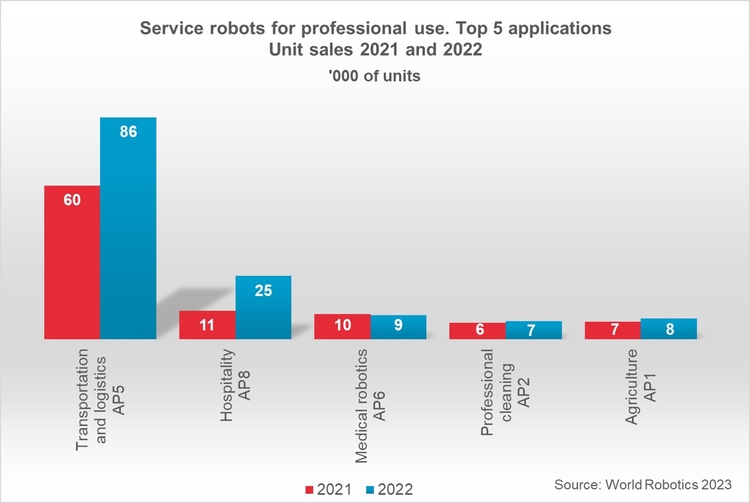
Definition
The International Organization for Standardization defines a “service robot” as a "robot in personal use or professional use that performs useful tasks for humans or equipment". (ISO 8373)
According to ISO 8373, robots require “a degree of autonomy”, which is the “ability to perform intended tasks based on current state and sensing, without human intervention”. For service robots this ranges from partial autonomy - including human robot interaction - to full autonomy - without active human robot intervention.
Service robots are categorized according to personal or professional use. They have many forms and structures as well as application areas.
The "new" ISO robotics vocabulary standard ISO 8373:2021 defines medical robots as a third category next to industrial and service robots. A medical robot is a robot intended to be used as medical electrical equipment or medical electrical systems.
The IFR statistics for service robots therefore include systems based on some degree of human robot interaction or even full tele-operation as well as fully autonomous systems, depending on the application.
If a mechanism developed with robotic technology is not fulfilling all characteristics of a robot (e.g. a teleoperated remote manipulator, haptic device, end-effector, unpowered exoskeleton), it is called a robotic device.

Statistics
The IFR Statistical Department carries out annual statistical survey on service robotics sales. The data is evaluated and published in the World Robotics Service Robotics report. The Executive summary is available as a free download. The full report with statistical data on service robots is available for purchase in the World Robotics section. The report also includes an extensive list of service robot manufacturers.
For practical reasons, IFR includes data on medical robots in World Robotics Service Robotics, deviating from ISO 8373.
IFR Statistical Department is continuously seeking for new service robot producers, so please contact us if you represent such a company and would like to participate in the annual survey conducted in the first quarter of each year. Participants receive the survey results free of charge.

Standardization
The International Organization for Standardization (ISO) is the worldwide federation of national standards organizations. Standards concerning robots are prepared by ISO Technical Committee 299 with the title “Robotics”.
Safety standardization is a very important issue at ISO/TC 299. Safety standards have been developed for the industrial robotics sector (ISO 10218-1, ISO 10218-2, ISO/TS 15066) as well as for the non-industrial (service) robotics sector (ISO 13482). Other topics for robot standardization activities at ISO/TC 299 include: performance criteria, modularity, and vocabulary.
More information about ISO/TC 299 “Robotics” including a list of published standards as well as a list of standards under development can be found at the ISO webpage.
Safety of (autonomous) mobile robots (AMRs) so far is treated in ISO 3691-4:2023 - Industrial trucks — Safety requirements and verification — Part 4: Driverless industrial trucks and their systems, which is under the responsibility of ISO/TC 110/SC 2.
Case Studies and Use Cases
Service robotics encompasses a broad field of applications, most of which having unique designs and different degrees of automation – from full tele-operation to fully autonomous operation.
Robots are improving our daily lives in an increasing variety of ways - helping paraplegics to walk again, improving the quality of the healthcare we receive, reducing the time we spend on household chores, making our retail experience more productive, keeping our homes safe, enabling us to eat fresher foods, with lower impact on the planet’s natural resources, and enabling the recycling of a wide variety of materials that are harmful to the environment if left to decompose. Whether in front of us, or behind the scenes, robots are making a substantial impact on the quality of our lives and the sustainability of the planet.
Case studies on service robots can be found here.
IFR Service Robotics Working Group
In recognition of the growing commercial activity in service robotics, the IFR Service Robots Group was founded on October 9, 2002, in order to support them in market assessment and in raising their profile in finance, media, and government bodies.
The IFR Service Robots Group is open to all companies producing service robots, components or related services. The group regularly meets in the context of the annual international robotics conferences or trade fairs. For further information, please contact the IFR Secretariat.

